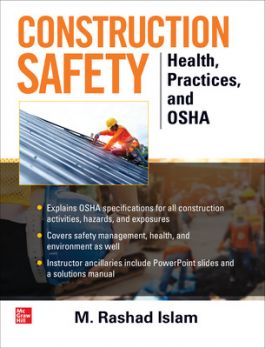OSHA to regulate aircraft cabins as workplaces?
 The National Business Aviation Association (NBAA) submitted comments on Jan. 22 raising questions about a Federal Aviation Administration (FAA) proposed-policy to allow the Occupational Safety and Health Administration (OSHA) oversight of aircraft cabin workplace safety issues. The FAA proposal raises the specter of additional oversight and regulation of business aircraft operations, according to an NBAA press statement.
The National Business Aviation Association (NBAA) submitted comments on Jan. 22 raising questions about a Federal Aviation Administration (FAA) proposed-policy to allow the Occupational Safety and Health Administration (OSHA) oversight of aircraft cabin workplace safety issues. The FAA proposal raises the specter of additional oversight and regulation of business aircraft operations, according to an NBAA press statement.
The proposed policy, required by the FAA Modernization and Reform Act of 2012, could potentially establish OSHA oversight of certain occupational safety and health requirements such as recordkeeping, blood borne pathogens, noise, sanitation, hazard communication, anti-discrimination and access to employee exposure/medical records for employees on aircraft in operation, other than flight deck crew.
In the association’s written response to the FAA review, Doug Carr, NBAA vice president for safety, security, operations & regulation, noted that the proposed policy, among other concerns, would apply a series of regulatory requirements to business aviation operations which likely never considered the regulatory impact on small business and did not include these businesses in the cost/benefit analysis of the OSHA regulation.
For example, NBAA's letter stated, "FAA regulations do not mandate the carriage of a flight attendant in non-commercial (Part 91) or on-demand commercial (Part 135) operations for these aircraft... Unfortunately, the FAA's proposed policy raises a number of concerns related to the application of occupational safety and health (OSH) standards to operations not previously covered or even analyzed in the development of those standards."
NBAA pointed out that the FAA notice also does not specify "the full scope of OSHA regulations that could be applied to aircraft cabins." For example, the FAA hasn't defined how standards relating to noise and bloodborne pathogens would apply to business aviation operations, or how any proposed occupational safety and health (OSH) requirements would affect small and medium sized businesses.
"Until the FAA is able to identify a complete list of OSH standards that would apply and ensure that those standards have considered the regulatory impacts on small businesses, it would be inappropriate to apply this proposed policy to either non-commercial or on-demand commercial operations," the association asserted.
The FAA notice also does not specify whether pilots who leave the flight deck to perform certain cabin and passenger safety functions would then be considered cabin crew under any new regulations.
Lastly, NBAA questioned how OSHA-driven regulations would apply to small businesses utilizing aircraft to travel between states, some of which have chosen to opt-out from nationally-defined OSHA standards in favor of state-defined workplace safety guidelines.
Carr stressed that business aviation "remains committed to ensuring a healthy and safe work environment for our aviation professionals." He added that several NBAA member companies have already addressed some of the concerns noted in the review through ongoing training and implementation of company-defined safety.
"This would be yet another regulatory burden added to the already extensive list of regulations our members face already," Carr said of the FAA proposal. "We definitely recognize potential areas for improvement, and acknowledge that they cannot go unanswered, but we do not believe a new and as yet undefined set of regulations from the government is the best way to handle those challenges."
Looking for a reprint of this article?
From high-res PDFs to custom plaques, order your copy today!




